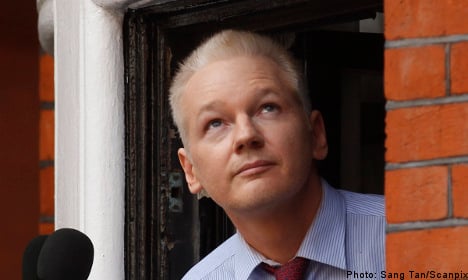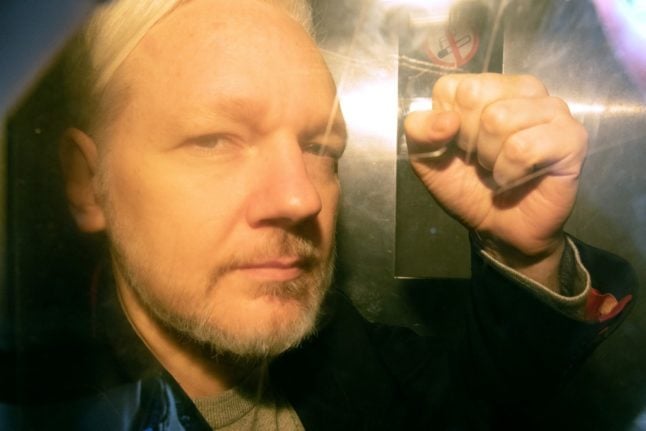John Shipton, Assange’s biological father, said he spoke frequently with the 41-year-old who won asylum from Ecuador to escape extradition from Britain to Sweden, where he faces sexual assault allegations.
“He’s in a small room… and in that he has a treadmill and a sunlamp,” Shipton told AFP in Sydney’s Redfern where he had accepted an Aboriginal Nations passport on behalf of his son.
Shipton, 68, said that his son “faces his future with equanimity” and is prepared for his “long meditation”.
Shipton also explained that his son is pressing ahead with his plans to run for the Australian Senate in next year’s national election.
The WikiLeaks founder has asked his father to write the constitution for his yet-to-be founded political
party.
Sydney-based Shipton said he felt Australians were “genuinely concerned and moved” by the plight of Assange and the work of WikiLeaks
He said he had spoken to Assange about the Aboriginal Nationals passport – used for travelling through Aboriginal lands in Australia.
“This occasion is a further opportunity to generate support for Julian’s situation,” he said.
“The irony is it’s a great help to bring to notice to people that the situation is well, very questionable, morally very questionable.
“The (Australian) foreign minister could do a little more. Although he says he has done a lot, he won’t speak to me.”
Shipton, who said he had always kept in touch with Assange’s mother but had little contact with his son from when he was three until his twenties, spoke of his pride in Assange, a former computer hacker.
“I am astounded, absolutely astounded. And each day more impressed,” he said.
“He seems as though he handles himself at those rarefied atmospheres really quite well.”
“It must have taken a great deal of suffering to have learned so quickly how to move amongst those people… and not display fear when the whole American empire wishes to crush you.”
But Shipton won’t be watching a new movie about Assange’s earlier life called “Underground: The Julian Assange Story” which is set to screen on Australian television early next month.
He doesn’t have a television.
AFP/The Local



 Please whitelist us to continue reading.
Please whitelist us to continue reading.
Member comments